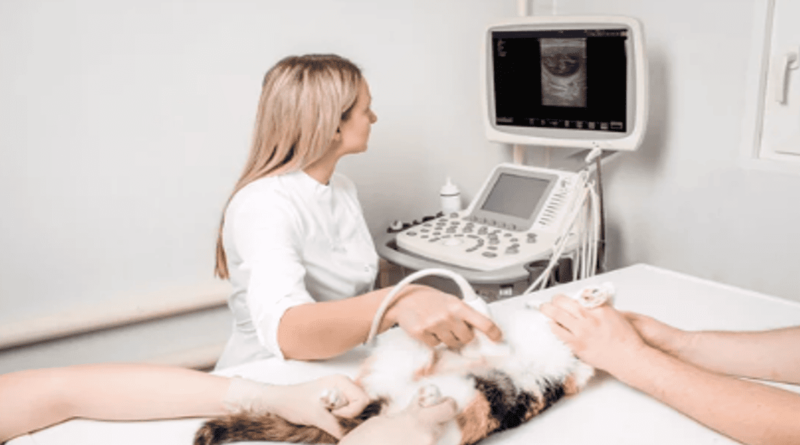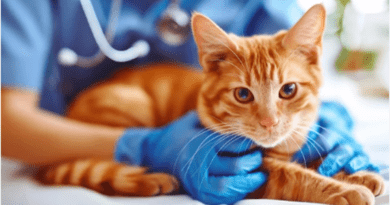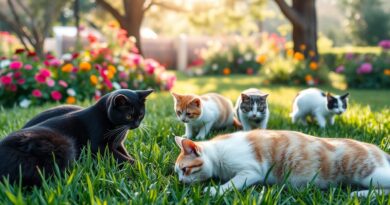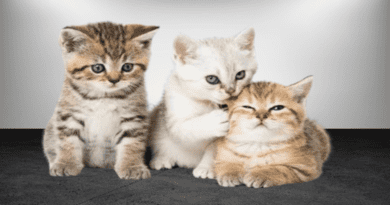Nutritional Needs of Pregnant and Nursing Cats
Pregnancy and nursing are critical phases in a cat’s life.It requires specific nutritional support to ensure both the mother and her kittens remain healthy. During these periods, a cat’s nutritional needs significantly increase due to the demands of gestation and milk production. Providing the right food and nutrients is crucial to support the growth of developing kittens and the mother’s well-being. Inadequate nutrition can lead to complications during pregnancy, weak kittens, or poor milk production. Understanding the specific dietary requirements of pregnant and nursing cats can make a significant difference in their overall health.
Nutritional Needs During Pregnancy
As soon as a cat becomes pregnant, her body starts preparing to nourish her kittens. Early in the pregnancy, her caloric needs may not increase dramatically, but the type of nutrients she receives becomes critical. Protein and fat should form the foundation of her diet, as these macronutrients support fetal development and energy production.
To meet these needs, a diet rich in high-quality animal-based protein is essential. Protein supports the development of the kittens’ organs, muscles, and tissues, while also helping the mother maintain her muscle mass. Pregnant cats also require more fat in their diet, as it provides concentrated energy for both the mother and the growing kittens. Omega-3 and omega-6 fatty acids, found in fish oil and some plant oils, play a crucial role in brain and vision development for the kittens.
Vitamins and minerals are equally important. Calcium and phosphorus are essential for the kittens’ bone growth, while taurine, an amino acid, supports healthy development of the heart and eyes. Without enough taurine, both the mother and kittens can face developmental issues. Vitamin A, D, and E also contribute to immune system support, bone health, and overall growth.
As pregnancy progresses, a cat’s caloric intake should gradually increase. By the final weeks, her energy needs can rise by up to 50%. At this stage, offering frequent, smaller meals can help, as the growing kittens inside her take up more space, leaving less room for food in her stomach.
Nutritional Needs During Nursing
Once the kittens are born, a mother cat’s nutritional demands peak. Lactation requires significant energy, as producing milk is extremely taxing on her body. Milk provides all the essential nutrients for the kittens during their first few weeks of life, so the mother’s diet must support this intensive process.
During nursing, a cat’s calorie needs can more than double compared to her normal diet. High-quality protein and fats remain a priority, as these nutrients help maintain her energy levels while ensuring her milk is rich in the essential nutrients the kittens need. Fats provide energy for both mother and kittens, while also supporting the kittens’ rapid growth.
Water intake becomes crucial during nursing. Producing milk requires a lot of fluids, and dehydration can quickly affect milk production. Fresh water should always be available, and some wet food in her diet can help boost her hydration levels.
Supplementing her diet with calcium is essential during lactation. Milk production draws on the mother’s calcium reserves, and without adequate intake, she may suffer from a condition known as eclampsia, which can cause tremors, weakness, and even death. A balanced diet rich in calcium and phosphorus helps prevent this dangerous deficiency.
During this time, feeding a high-energy, nutrient-dense diet is vital. Kitten-specific food or food designed for pregnant and nursing cats often works best, as these formulas are made to meet the heightened nutritional demands of reproduction and milk production. By feeding smaller, frequent meals, you can help her digest and absorb nutrients more efficiently.
Transitioning After Weaning
Once the kittens begin to wean, around 4-6 weeks, the mother’s nutritional demands will gradually decrease. Her food intake should return to more normal levels, although the transition should be slow to avoid gastrointestinal issues. As the kittens become more independent, they will rely less on their mother’s milk, allowing her body to recover from the stresses of pregnancy and nursing.
It’s important to monitor her body condition during this phase to ensure she returns to a healthy weight. Some cats may struggle with excess weight if they continue to eat high-calorie foods after the weaning process, while others may need additional nutrition to regain strength.
Pregnant and nursing cats require special care, and nutrition plays a fundamental role in ensuring both the mother and her kittens stay healthy. A diet rich in protein, fats, and essential vitamins and minerals is key to supporting fetal development, milk production, and the mother’s overall well-being. Offering frequent meals of high-quality, nutrient-dense food can help meet her heightened energy demands. Keeping her hydrated and ensuring proper calcium levels will further support her during these demanding stages. By carefully adjusting her diet during pregnancy, lactation, and after weaning, you help her navigate this important period of life in the healthiest way possible.




